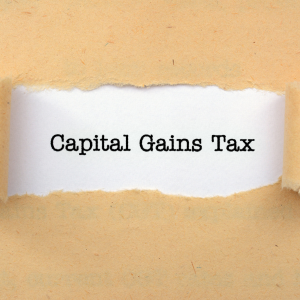
Understanding Long-Term Capital Gains Tax
The long-term capital gains tax is something buyers and sellers of real estate need to know about. Long-term cash gains happen when you sell investments or real estate that you’ve owned for more than a year. Capital gains tax is paid on the money made from this sale. Most of the time, long-term capital gains have lower tax rates than short-term profits. You can plan better and maybe even save money when you sell if you know how the capital gains tax works.
To plan your money well, you need to know the rules about long-term capital, like how much capital gains tax you owe. By understanding the most recent tax laws, you can be sure that your next real estate move will get you the best returns possible while still following the rules. Legacy Home Solutions, LLC can help by guiding you through the process and providing solutions tailored to your situation.
Calculating Tax Liability When Selling Real Estate
Read this to learn how to figure out how much capital gains tax you owe when you sell a house. Before determining your taxable gain, you must know the property’s “adjusted basis.” This is usually the purchase price plus any approved improvements and minus any loss in value. In the next step, you must take your property’s adjusted base away from its sale price. After that, the capital gains tax is added to the income. Rates change based on how long the gain will last. How much capital gains tax you pay may also depend on how much taxable income you have and how long you’ve owned the property.
Capital gains tax rules can be different for homes that you live in and homes that you rent out, so it’s important to look for exemptions and credits whenever you can. People who sell things or invest in the Cleveland area should carefully calculate how much capital gains tax they must pay.
This will help them make smart decisions and keep the tax authorities happy. Not being surprised by capital gains tax costs is less likely if you plan. It also helps you make smart financial choices that protect your profit in any deal.
Capital Gains Tax on Home Sale and Seller Financing
If you want to get seller credit when you sell your home, you should know how the capital gains tax works. The buyer doesn’t pay all at once in seller financing. Instead, the seller works as an investor and gets paid back over time. In this case, you might still have to pay tax on the extra money you made from the sale. However, how and when you pay capital gains taxes may depend on how your deal was set up. If you use the monthly sale method, for example, you might be able to pay your capital gains tax over a number of years instead of all at once. This lets you deal with your taxes better and can help you keep track of your money. Still, every home sale is different, and the best way to make sure you handle things like capital gains tax, seller financing, and gains tax in the best way possible is to hire pros. If you want to protect your financial future and get the most out of how you pay capital gains tax, you need to take action. It is important to know if you want to sell something and pay the least capital gains tax.
Minimizing Capital Gains Tax Liability
Cutting down on the capital gains tax you have to pay starts long before you buy a house. You might be able to get tax breaks if you plan. For example, the home sale deduction for main residences keeps a big chunk of your profit out of capital gains tax. If you reinvest the money from a 1031 swap, you might also be able to put off paying capital gains tax on investment properties. This will help the value of the properties you buy keep going up. To get even less capital gains tax, it’s important to keep good records and take advantage of all the tax breaks you can.
Capital gains tax rules change constantly, so it’s important to talk to people who know about them. This will help you meet dates and find every opportunity. If you plan and talk to a professional, you can turn a confusing capital gains tax situation into a smart benefit. When you sell a house, this will help you keep more of the money you earn and set you up for better financial results each time.
Impact of Ohio Taxes on Capital Gains and Real Estate Sales
How much money you get when you sell your Ohio home can depend on the tax rules. This is why tax planning is a necessary step for both investors and renters. There are other things you need to think about besides the federal capital gains tax when you sell land in Ohio. There isn’t a separate tax on capital gains in this state, but they are taxed with other income, which can change your overall tax bill. To get the right capital gains tax amount for Ohio, you must get the adjusted basis right. This looks at the buying price, any improvements, and any deductions. Making a good tax plan will help you meet both federal and Ohio tax requirements and make sure you don’t pay too much. It can help you in every deal if you take the time to keep track of your cash gains and loans.
When you sell your Ohio home, you can pay less capital gains tax and get the most money back after taxes if you plan your taxes well.
Capital Gains Tax and Real Estate Investment Strategies

When you decide to deal in real estate, you should consider how much money you will get back. Everyone who invests wants to make as much money as possible with as little risk as possible. If you sell your stock at the right time to get lower capital gains taxes, defer your capital gains with a 1031 exchange, or collect your capital gains and losses to keep your stock balanced, you can make big changes to your finances. When you look at how much your property has grown and what your exit choices are, don’t forget how important it is to figure out your capital gains.
The bottom line can be affected by capital gains at any point in the life cycle of an investment. This is why smart buyers plan for them. Staying up to date on new capital gains rules is a great way to make sure you’re always getting the best results and minimizing the effects that capital gains can have. Every time your goals and assets change, you should keep making your capital gains plan better to get the most out of your real estate investments.
Taxable Income and Capital Gains from Property Sales
When you sell a house, your gain, or profit, changes more than just your bank account. It also changes how much tax you have to pay for the year. Your taxable income increases when you add up all of your income, including capital gains. This might make your tax rate go up. When you figure out your capital gains, you need to be careful because each dollar of capital gains from selling a home can change how much tax you owe in total.
It is important to know how capital gains are handled at both the federal and state levels. States like Ohio, which tax stock gains as income, make this even clearer. To figure out capital gains correctly, avoid mistakes, and get the most out of tax breaks, it’s important to keep good records of the purchase price, changes, and sales costs.
Before you sell your home or an investment, you should know how capital gains affect your total taxable income. This will help you make better decisions. Keep an eye on capital gains the whole time. This will help you plan your taxes and get the most money from each sale after taxes.
Understanding Your Tax Liability in Ohio
When people in Ohio buy homes, they need to know how capital gains affect their taxes. Capital gains are taxed the same way income is in Ohio. This might make your state’s income tax rate different. It costs the government money when you sell your home and its value increases. This shows that capital gains and taxes always go together, no matter what kind of deal it is or how big it is. The land’s value changes over time, as do cash gains. Watch them very carefully. Write down information about capital gains, like how much the house costs and whether it needs repairs. This way, you can stay in charge and avoid tax shocks. You can better manage your money and pay your Ohio taxes if you know about capital gains.
Tax Planning for Real Estate Sales in Cleveland and Beyond
When you buy or sell your home for cash in Cleveland, OH, you should think about taxes. There are ways for buyers and traders to make the most money after taxes in Ohio because taxes are important. How is income from real estate taxed in Ohio? This will help you decide what to do when you sell a home, business, or investment property. In Cleveland and other places, you can choose not to pay property taxes. Even though every real estate deal differs, you can do your Ohio taxes better if you plan. A real estate agent with a lot of experience is the best person to help you plan for and handle Ohio taxes when you move.
Calculating Taxable Income: Factors to Consider
You need to do more than just set aside the sale price to find out how much taxed real estate income you have. Big changes, trade costs, and getting back the money you lost on property that you invested in can all affect how much of your income is taxed. Your taxable income increases when you sell a house and get money from it. This might make your tax rate go up. If you want to plan your money well, you need to do the math. If you want to keep track of all the money that comes in, you need to know the difference between capital gains and other gains. If you take advantage of your tax breaks, like upgrades and allowed sale prices, your tax bill may decrease.
You can understand your taxes, get the most out of your returns, and make the most of your next real estate deal if you use these things in your math.
Taxed Gains and How to Reduce Your Tax Liability

You can make a lot of money when you sell taxed properties. Each gain can have a big effect on your yearly tax bill. The tax people will look at all your gains, whether from several rental homes or one big gain from selling your main home. If you want to pay less tax on your gains, you should plan, use legal deductions, and carefully reinvest your gains. People in Ohio need to pay extra attention because gains are added to their state income instead of being looked at separately.
Any real gains are taxed, so keep track of how much the property cost and what changes were made to it. If you plan and keep good records, you can keep more of your hard-earned income and lessen the impact of taxes on gains. This way, every gain will help you reach your long-term goals instead of adding to your tax bill.
Avoiding Capital Gains Tax: Strategies and Tips
Plan if you want to pay little or no capital gains tax when you sell your home. Real estate gains are often big, so finding ways to pay less tax on them can save you a lot of money. One of the best ways to save money is to use the IRS’s main home exclusion. You can keep up to $250,000 (or $500,000 if you’re married) of the money you make when you sell your home without paying taxes. There is a way to delay capital gains and the taxes that come with them for financial properties with a 1031 exchange.
The money from the sale can be used to buy similar properties. You won’t have to pay taxes immediately, so you can keep getting rich. You can also pay less tax on your gains if you sell your home in years when your taxable income is lower. You should keep good records so you only pay taxes on real gains after all tax-deductible costs have been figured out. A lot of people find that working with a tax advisor helps them make sure they take advantage of all the ways they can lower their gains-based tax bills and handle the difficult rules with ease.
In the end, understanding each tax rule and how it affects your rental income will help you get the best deals and pay the least tax. Contact us today to get started with a fair cash offer on your property.
Basics of Long-Term Capital and Tax Implications
In real estate, “long-term capital” indicates investments or properties owned for longer than a year before selling. The term is crucial since it affects your tax obligations. Selling such an item generates a long-term capital gain, which is taxed. Long-term capital gains tax rates are lower than regular income tax or short-term rates, providing considerable tax savings. This is a major reason for holding assets longer. From buying to selling, tax issues are considered at every stage.
Planning around federal and state taxes can help you keep more of your wealth or lose part of it. Capital gains are state income in Ohio, adding another tax factor for sellers. It’s crucial to track your entire tax burden, annual tax bill adjustments, and regular tax legislation changes. Understanding long-term capital, how it affects taxes, and proactive tax management will help you make the best financial decisions and keep more money. Your investment plan includes every tax you owe when you plan. No need to be surprised by tax.
Ohio Real Estate Sellers: Reporting Capital Gains
Ohio real estate sellers must record capital gains appropriately to meet state and federal tax obligations. The capital gain you report when selling your house affects your total tax. You must disclose all sales capital gains on your tax return annually. This alters your annual tax bill. Ohio has no capital gains tax. You pay extra Ohio state tax because your capital gains are added to your total taxable income. Avoid unnecessary fines by accurately reporting your tax information, from the property’s original valuation to capital changes.
You must keep accurate records to report capital gains appropriately and pay taxes on your genuine net capital. When selling a residence in Ohio, follow all tax and capital filing laws. This protects your finances and prepares for tax-efficient deals.
Capital and Gains Tax Compliance in Cleveland
To pay your capital gains tax in Cleveland, you have to pay close attention to every single aspect of your capital transactions. Because the real estate market in Cleveland is so busy, buyers and sellers must report all capital events, such as long-term and short-term capital transactions, to stay on the right side of the law. Correct capital reporting means figuring out your capital gain correctly, taking into account improvements, costs, and the property’s original capital cost base.
It is important to keep accurate records of every capital move to avoid audits or mistakes that cost a lot of money. This is especially important when capital compliance is linked to federal and Ohio income tax duties. Cleveland’s method depends on keeping accurate records, and the goal is to ensure that all cash transactions are clear and can be tracked. If you follow best practices when reporting capital events and make capital compliance a top priority, you can avoid fines and make sure your capital situation is as strong as it can be in every real estate transfer.
Reducing Capital Gains Tax in Ohio
If you want to lower your Ohio capital gains tax, you must be careful at every step of the capital planning process. Ohio doesn’t have a separate capital gains tax, but your capital gains are taxed along with your state income, which means they have a big effect on your capital as a whole. There are a number of things you can do to lower your final capital tax bill. Start by keeping clear records of your capital expenses, from the initial investment in capital to capital changes. This will help you fine-tune your tax calculations and ensure they are correct. People who sell real estate can keep their taxable capital in a better bracket by timing their capital deals for years when capital income is lower.
You can delay recognizing taxable capital gains with strategies like a 1031 exchange. This lets you keep the money you’ll need to spend in the future. To keep your capital from being overtaxed, it is also important to make the most of any relevant exclusions and deductions. You can keep more of your capital working for you and pay less taxes in any Ohio real estate situation by being proactive about each capital transaction. This is true whether you are looking for personal or business capital returns.
Tax Implications of Selling Property in Ohio

It’s important to know how Ohio’s tax rules might affect your bottom line when you sell a house in Ohio. Ohio doesn’t have a separate capital gains tax like some states do. Instead, your money from selling property is added to your taxable income. That means you must pay Ohio income tax on any gain you make from selling real estate in Ohio.
Ohio doesn’t make a difference between types of property, so every sale, in Cleveland or anywhere else in Ohio, needs careful attention to detail when figuring out taxable gains. The Ohio tax system stresses the importance of keeping accurate records. Write down every improvement and all costs connected to the sale to make sure you only pay Ohio tax on your actual net gain.
Getting the time of your sale right with other income events or taking advantage of deductions allowed by Ohio law could help you pay less in Ohio taxes. Capital gains are taxed by both the state and the federal government, so it’s important to think about both when selling a home in Ohio.
Keeping up with tax issues gives Ohio sellers real confidence, which helps them make the most of every Ohio real estate chance while still following all Ohio rules.
Cleveland Real Estate: Capital Gains Tax Explained
If you own property in Cleveland, you must know how the capital gains tax works to make the most money and pay the least tax. In Ohio, capital gains from selling land are taxed along with your other income, not separately. This means that both your federal and Ohio returns are affected.
The rules are the same whether you have lived in Cleveland for a long time or manage rental homes all over Ohio: be careful with your records and know your numbers. In Ohio, your income is directly affected by things like the price you paid for the property, how much it cost to fix up, and when you sold it.
Many sellers look for ways to lower their taxes, like using delayed exchanges or taking advantage of tax deductions. By keeping up with the latest Cleveland and Ohio tax rules, you can ensure you never pay more tax than you have to. Always try to lower your risk and keep your capital safe. To manage gains effectively in Cleveland and across Ohio, you need to plan and get specific help for your state.
How to Avoid and Reduce Tax Liability on Gains
Real estate gains tax reduction involves realistic strategies and careful planning. Since higher income might drive gains into a higher tax rate, selling during a lower income year can help you avoid taxes. If you’ve lived in the property long enough, the main home exception exempts some gains from tax. A 1031 exchange lets you roll gains into another investment to avoid taxes on investment property.
Keeping detailed records lets you claim every deductible cost and minimize your taxable income because all gains are taxed. Working with a tax professional helps you avoid excessive taxes and understand how your income, deductions, and credits combine so you only pay what’s needed. Smart preparation and documentation are your best defenses against high real estate income taxes.
Financial Services for Reducing Gains Tax
When you sell a house, using the right financial services can help you pay less in capital gains tax. Financial experts help sellers find acceptable ways to lower their taxes beyond what is required. When someone sells a property, a family home, or a business asset, financial experts look at all possible deductions, exemptions, and deferrals and try to make the most of them. A lot of the time, these services include planning, figuring out when to sell, how to structure deals, and techniques that help sellers limit capital gains.
In Ohio’s competitive real estate markets, local banking services help sellers keep up with state and federal rules. Expert financial teams can help sellers handle all the complicated details with confidence. This can turn common selling problems into financial benefits that will help them reach their long-term financial goals during the selling process.
Property and Capital Gains: A Guide for Ohio Sellers
It’s not easy to sell land in Ohio, especially if you have capital gains. When you sell your home for cash in Lakewood, OH, whether it’s for business or for your own use, you may have to pay capital gains tax. No matter what kind of land you own, you need to know how gains are calculated to get the most money after taxes. Profits from selling land are taxed as income in both the federal and Ohio systems, so Ohioans who are making budgets need to take both into account.
To lower your capital gains tax liability, you should do things like keep detailed records of improvements or time your sales to match changes in your income. To make your next property sale faster and more rewarding, take action and learn as much as possible.
Capital Gains and Taxes on Real Estate Investments
If you want to maximize your real estate investment, you must manage capital gains and taxes. Whether you’re selling a home for long-term gains or short-term gains, the tax effects vary. Capital gains are earned when selling a rising-value property; federal and state legislation, like Ohio’s, taxes these gains. Know how property gains are calculated and how different property types are treated to plan for lower taxes. By tracking property improvements, purchases, and other charges, you can reduce your taxed gains even further. For an audit, you need correct property records to support and explain your calculations. Think ahead about how investing in real estate will influence your taxes and take advantage of all the deductions available for your type of property to safeguard your profits and build your real estate stock.
Looking to sell your house quickly and without the stress? Legacy Home Solutions, LLC is here to help. Call us today at (440) 973-6024 to receive a fair, no-obligation cash offer. We buy houses in any condition throughout Greater Cleveland, making the process fast, simple, and hassle-free.
Helpful Cleveland Blog Articles
- Selling A Hoarder House Quickly in Cleveland
- Selling Your Mortgaged House In Cleveland, OH
- Appraisal Required Repairs For Cleveland Home
- Selling A Mold-affected House In Cleveland, OH
- HOA really take your house in Cleveland, Ohio
- Paperwork For Selling Your Cleveland Home
- Home Sale Contingencies In Cleveland’s Real Estate Market
- Selling a House with Tenants in Cleveland, OH
- Taxes to pay when Selling house in Cleveland, OH
- Successfully Sell Your Home By Owner In Cleveland, OH
- Selling A House With Asbestos In Cleveland, OH
- Is There a Way to Avoid Capital Gains Tax in Cleveland, OH
- Refinance a House After Divorce in Cleveland, OH

